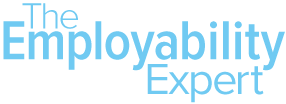The Number 1 Thing Job Seekers Must Do Well To Improve Their Employability

A recent article in Forbes*, highlights the 10 best job search websites. This Top 10 list was identified after scouring the field of over 700 sites.
Studies show:
- While While 95% of all job seekers spend the majority of their time on this massive field of job search sites, only 15-20% of company hires are made via on-line postings.
- Anywhere from 65 -85% of all jobs are filled by candidates that someone in the company knows or to whom someone has been introduced, a.k.a business networking.

The implications of poor or limited business networking for the unemployed are quite profound:
- The vicious cycle: The longer it takes to get a job, the less self-confident the job seeker becomes, fostering continued “avoiding” of networking activities, the key resource for being hired.
- Fewer targeted connections made result in fewer opportunities generated for relevant jobs.
- Hiding behind a computer screen applying for jobs online keeps the job seeker out of sight and out of mind with potential employers and referral sources. Communication skills become diminished due to lack of practice.
When the court or counsel see limited or anemic efforts to network regularly, both in person and on-line via Linked In or other business networking sites, this can damage the unemployed’s case.
As an employability expert, I advise 4 essential networking actions for job seekers:
- Prepare. Know who is in the room and have savvy open-ended questions to ask connections about their business or company before attending the networking event.
- Boost confidence. Job seekers should make a list of accomplishments made prior to becoming unemployed to bolster confidence before going to networking events or making job-search calls.
- Follow up promptly and effectively. Follow up within 24-48 hours of the event; make sure follow ups always provide some benefit or value to your connection.
- Document. Make sure all networking activities are documented.
If the job seeker avoids networking, encourage him/her to get networking training or coaching and reading of recommended books on the topic.
Here are some beneficial networking resources and tools:
55 Great Icebreaker Questions™
*Forbes Article: The 10 Best Websites For Your Career
Networking Books:
Harvey Mackay
Dig Your Well Before You’re Thirsty
Jeffrey Gitomer:
The Little Book Of Connections
Nancy Fox
Network Like A Fox: A Targeted Approach To Building Successful Business Relationships In Person & Online
Keith Ferrazzi
Never Eat Lunch Alone
Mike Abrams, Michael Faulkner, Andrea Nierenberg
Business Networking For Veterans: A Guidebook For A Successful Military Transition Into The Civilian Workforce

